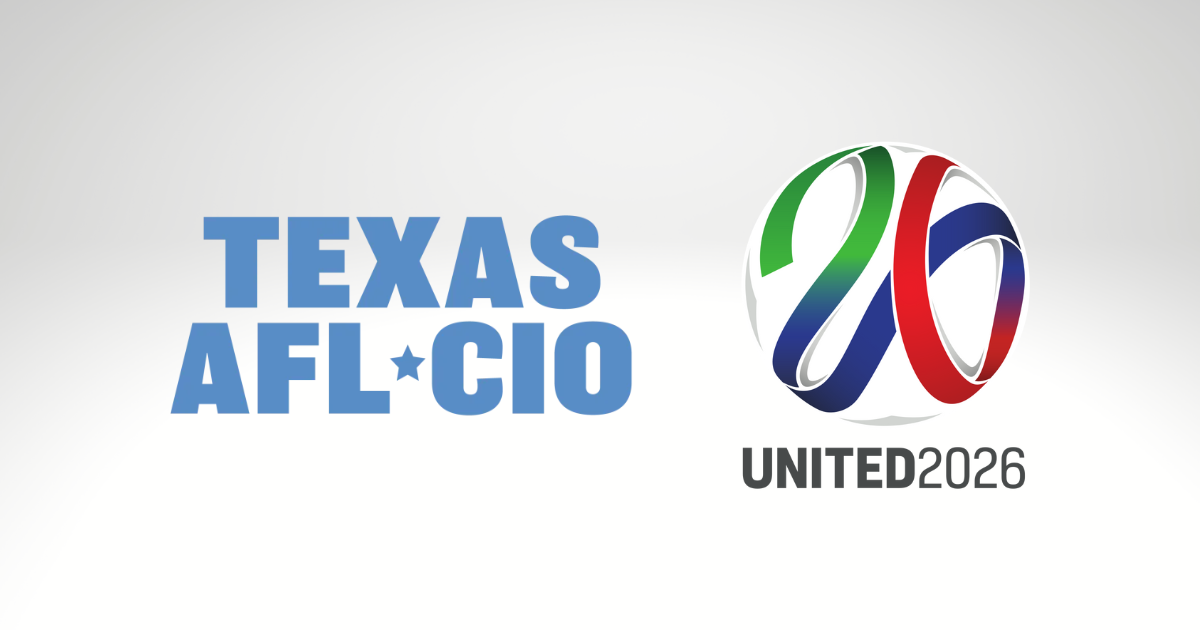On June 16, leaders in the Houston and Dallas/Fort Worth areas jumped for joy when they heard the news they had long anticipated: the World Cup was coming to Texas.
Texas politicians and interest groups had been working to bring the world’s most widely viewed sporting event to the state since the 2018 announcement that its 2026 edition would be a hosting collaboration between the United States, Canada, and Mexico. Though Texas has held countless major American sporting events over the years, none hold a candle to the massive, monetary windfall that a World Cup can bring. To put things in perspective, the massive soccer tournament is projected to provide a host city with the economic equivalent of six Super Bowls, aka over a billion dollars in revenue.
One of the biggest interest groups given a boost by the selection was the labor movement. With FIFA, the international governing body in charge of soccer, having received significant criticism for their selection of worker-abusing Qatar for the 2022 tournament, organizations like the AFL-CIO had leverage to ensure that workers were treated fairly this time around.
“Despite our high-falutin sense of ourselves, we’re not that good at labor rights in the United States, and that was a liability in us attracting the games,” Texas AFL-CIO President Rick Levy said. “The site selection criteria weighed things like labor standards and human rights, so our folks advocating to make sure that they were respected improved the competitive posture to get successful bids. It was incumbent on us to engage and to make sure those issues were addressed.”
As a result of the bid negotiations, the Texas-held 2026 World Cup games will “paint a pretty broad brush economically” and thus benefit workers in industries like construction, hospitality, transportation, and entertainment. The economic bounty will be so significant that Texas labor leaders’ ultimate goal is now for FIFA to require the same standards that will be implemented in Texas across all of the sites selected for the 2026 World Cup.
“Usually when these things happen, the benefits of the economic activity don’t always translate to people who are actually doing the work as opposed to the corporate owners, and those concerns were woven into the bids that both Houston and Dallas made,” Levy said. “There’s a lot of lip service paid to those kinds of principles, but it takes organizing and real work to translate those words into reality and that’s what our people are doing,” Levy said.
It is highly unlikely that the World Cup’s visit to historically anti-labor Texas will initiate any major change in the four-year interim between now and the tournament. In the meantime though, organizers like Levy and the AFL-CIO will celebrate this small win for the labor movement and continue fighting to make the Lone Star State more friendly to unions and working people in the future.
“I hope there’s fundamental structural political change in the state by then,” Levy mused. “I’ll leave it to the prognosticators as to whether it’ll happen. It’s certainly what we’ll be working toward.”




